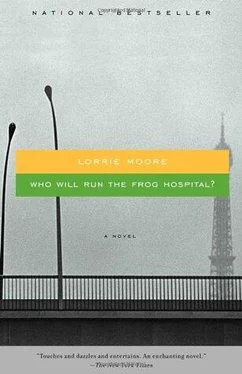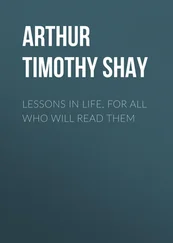Sils straightened and looked me square in the eye. She was wearing a rhinestone earring and it caught the setting sun — it did! — sending out a flash of light, like a rescue flare. “How can I not tell Mike and also come up with the five hundred dollars?” We earned a dollar sixty-five an hour. It was 1972, and that was minimum wage.
“I’ll get it,” I blurted.
“Pardon?”
“The money. I’ll get it for you.” It was such a daring and preposterous remark that it silenced both of us, silenced us deep into the evening, even when we were at the Sands, dancing and drinking and bringing on the blur, farming the fuzzy foam, the dream edges, feeling our own watery gait and the tough, hard drums of the band, the ride home perhaps from someone we knew this time; I think it was someone we knew.
And when I awoke the next day, too little, too young for the headache and dry nausea I inevitably had, and too old suddenly with information, the sun cutting through the moist morning already, getting down to business, like a street sweeper, my best friend meditating her abortion, my mother, menopausal and preoccupied, driving me to work and saying nothing, not really, just dropping me off, then adding, “That’s sixty-five cents each way, don’t forget,” so as not to feel used by her children, imposing a lesson about money, how you must pay for everything, nothing is free (“Yes,” I said), charging me daily for the lift to work, a practice that now in memory embarrasses me for both of us; why did we live like that, with all that mean, incessant tallying? And me changing from my clothes into my striped dress and pinafore, having learned furtiveness first here, in hiding my too-thin girl’s body from the others, looking up my number on the chart, picking up my money box and sorting it out in the drawer of my register — tens, fives, ones, quarters, dimes, nickels, all with their own compartments, fitted together in the square of the drawer like a Mondrian or spice cupboard, and no pennies, just a big blank space for twenties; fifties and traveler’s checks under the drawer; it was then I knew what I would do. Of course. I had all A’s in math at school; that’s why I’d been hired. It came to me in an obvious way, like a chambermaid who year after year sees plane tickets on the nightstands of the rooms she dusts, the rooms of the toilets she cleans, and to whom it comes in a snap, a quick vision, like a stroke of genius or perhaps just a stroke, that she must travel, fly: take these and go. And so she does without a word.
Of course, she is caught.
But I had it planned differently. What I could do, I could do during lunch, when the other cashiers, Sheryl or Debbie, were on their breaks and I had to both ring up and tear the tickets myself, at the perforation, and hand them back to the customers. Customers who were always right.
“The customer always sucks,” Sils once said. “Now that’s a great motto for an amusement park.”
“That’s twelve dollars, please.”
“But the kid’s under four.”
“Yeah, right.” I’d roll my eyes, and put one hand on my hip.
“What are you, the owner’s daughter?” they’d ask.
The children were always indignant. “Daddy?”
“What?”
“I’m six . I’m six .”
“The kid’s not six. Don’t listen to him.”
“OK. All right. Eight dollars. Here’s your tickets. Jesus Christ.”
Sometimes I didn’t ring up. When the other girls were on break, I pressed the No Sale key, rang open the drawer and sold stubs, keeping track on a scratch pad so that later, before closing, I could reclaim this amount from the register, or sneak it from the money box, which I would take to the bathroom with me, “for extra security.”
“That’s twenty-four dollars. Here are your tickets.”
“That’s it? That’s all there is to it?” the park visitors (“Visitors to the Park,” according to the P.A. system) would say.
“Yup.” I would stare straight ahead.
“That’s all we get? We just show these?”
“Uh-huh.”
“Oh. OK.” And they would wander off through the gate into the park.
At first there was never an overage, or a shortage, or a discrepancy of any sort. I would walk across the park with my money box to a snack stand, buy a root beer, and then, heart briefly pounding, go to the bathroom and take out the calculated sum — forty-eight dollars, say, or once, ninety-six — and return the rest to Isabelle, our supervisor, in the office upstairs. It wasn’t that scary to do this, for some reason, because — unlike the time I ran under a truck stopped for a red light, rather than walk all the way around it, and unlike the time I hitchhiked alone at night to the lake just to test myself, to learn the meaning of myself good god whatever that was, and unlike the time I shoplifted from a downstreet store a sweater I had coveted grossly, in a heat (“hocked,” we said; “I like your shirt; did you hock it?”) — I was doing this for Sils and her emergency.
I kept the money under my stack of records at home — Carole King, Joni Mitchell, Bread — and at the end of the week I had five hundred and fifty-two dollars, pressed flat as envelopes from the weight of all that music.
Sometimes with Daniel I argue about the sixties. He is nine years older than I am, and knows that time better than I, or differently.
“There’s a real age difference between us,” he says.
“Age-schmage,” I reply.
“Unfortunately, there’s also a real schmage difference. We made the sixties,” he says, speaking in a generational “we” that excludes me. “We made the counterculture. You were twelve years old.”
“But we inherited it,” I say, “and as children we made ourselves around it, with it. We hung our own incipience on politics. The counterculture got on the ground floor with us, as children; it was the wood we were built with. We used to watch you guys, the eighteen- and nineteen-year-olds, on LSD at the public beach, or playing Duck, Duck, Goose in Horsehearts Park with your beads and long-flowing Indian smocks. But then we got to be that age, and we went to the park, or to the lake, and there wasn’t a Duck or a Goose or a hit of acid anywhere. There was only Ford pardoning Nixon.”
“Christ,” snorts Daniel.
“But once upon a time it had been all we knew,” I say. “Rebellion, revolution, and all those songs that went with them. We ice-skated to ‘Eve of Destruction.’ ‘The western world, it is exploding,’ and we’d do these little spins and turns.”
Or something like that. I say something like that.
“But still it was ours ,” he says. “It came from inside of us , not you.”
“Yes, you made it, but as a result it was a thing outside of you. You could walk away from it. And you did. We couldn’t, you see. It was in us. And when it was no longer out there in the world itself, it left us stranded, confused, betrayed, masturbating and doomed little outlaws.”
“Masturbating and doomed little outlaws?”
“Sure.”
“What are you talking about? You can’t use the sixties like this. You can’t use the sixties to explain yourself to yourself.”
Of course that’s what I want. I think of the lies and theft that cultivate the provincial heart. I had been beyond questioning authority. I’d felt unseen by it. But now, looking back, I want to fudge and say it was the time , not the place. “But which is more powerful, what you make or what you inherit? Which is more permanent?” I ask. “I realize that we’re talking ridiculous generalities here, but let’s face it, a discussion is always more fun that way.”
“It’s a sign,” he says, “of a person looking for excuses. A hoodlum seeking politics.”
Читать дальше












